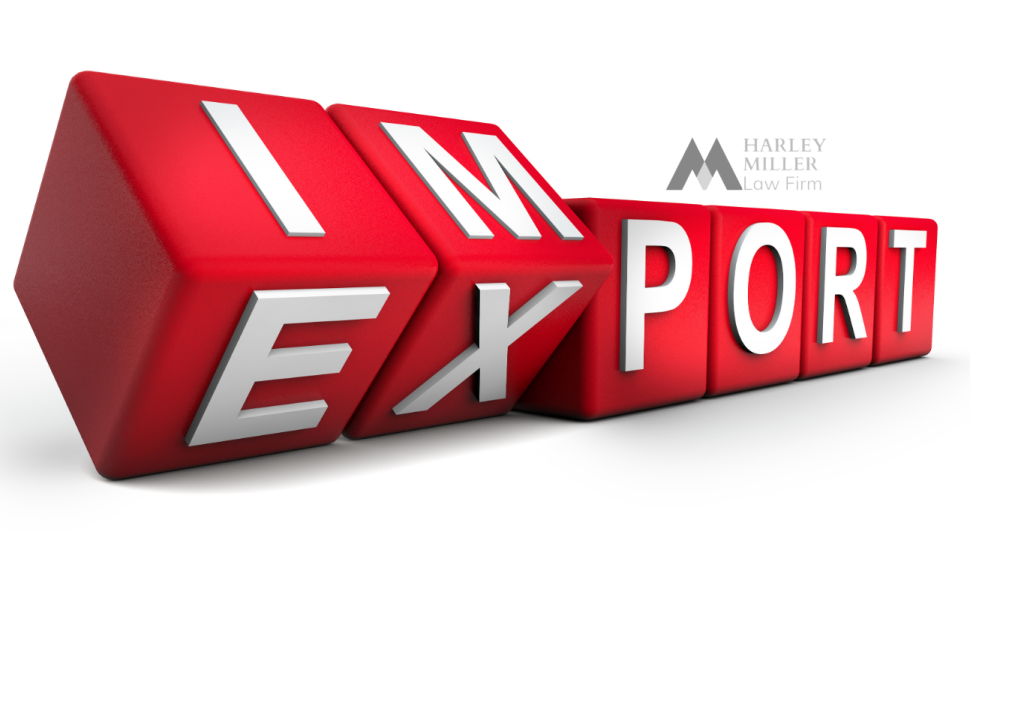Nowadays, it is easy to come across imported food products such as cakes, candies, and juices in Vietnamese grocery stores and supermarkets. However, they must undergo a specific procedure to comply with regulations and ensure quality and safety for consumers in order to sold for such food importing products in the country. This article aims to highlight several legal aspects of importing food products from abroad and related considerations that importers should keep in mind.
Definition
As per legal regulations, food is classified as products that are consumed in their natural form or products that have undergone preliminary processing and preservation to be consumed. However, it excludes cosmetics, cigarettes, and pharmaceutical substances. Furthermore, there are food products that serve purposes beyond simply providing sustenance on a daily basis. Instead, consumers can opt for functional foods, also known as health food, to supplement their dietary needs for specific purposes.

Food import conditions from abroad
Prior to importing food into Vietnam, the manufacturer must determine the intended circulation and distribution in Vietnam based on the type of food, typically determined by the formula and ingredients used in the product. This determination is of utmost importance as it governs the precise procedures that must adhered to in order to ascertain the eligibility of the imported product for distribution in Vietnam. Currently, there are two procedures in place for imported products: (2.1) self-declaration procedure and (2.2) registration of the product declaration.
Self-declaration
a. Food within the scope of application
Applicable to pre-packaged foods, food additives, food processing aids, food storage tools, packaging materials in direct contact with food.
However, for products, raw materials for production and import are only used for production, processing of export goods or serving the internal production of organizations/individuals not consumed in the domestic market that exemption from this procedure.
b. Dossier for registration of the imported product declaration
The designated laboratory or accredited testing room, suitable for ISO 17025, issues the food safety test results of the product within 12 months up to the date of submission. These results include safety criteria based on the safety indicator of the Ministry of Health. In the absence of regulations from the Ministry of Health, the food safety test results promulgated based on the principle of risk management under international regulations or safety criteria established by organizations or individuals through corresponding standards.
Procedures for registering of product announcement
a. Foods within the scope of application
– The applicable food categories are health protection food, medical nutrition, and food designed for special diets.
– Nourishment options specifically for infants up to 36 months old are available.
– Researchers have discovered new applications for mixed food additives that not included in the list of permissible additives for use in food or do not meet the Ministry of Health’s prescribed standards.
b. Dossier for registration of the importing product declaration
– The competent authority of the origin/export enacts the Certificate of Free Sale, Certificate of Exportation, or Health Certificate paper. The safety content included in these certificates guarantees the wellbeing of product users and enables unrestricted sales in the manufacturer/exporter’s market.
– The designated laboratory or accredited testing room, which is suitable for ISO 17025, issues the food safety test results of the product within 12 months prior to the submission date. These results, which incorporate safety criteria, are established on the basis of the safety indicators set by the Ministry of Health. Following the principle of risk management outlined in international regulations, these certificates are issued by the relevant authorities. In the absence of specific regulations from the Ministry of Health, the results are determined using safety criteria published by organizations or individuals. The submission can include either the original or a certified copy of these results.
– Scientific evidence proves the use of the product or of the ingredients that make up the announced use (original or certified copy of organizations and individuals). When using scientific evidence about the use of the ingredients of the product to make use of the product, the daily dose of the product must be at least greater than or equal to 15% of the ingredients mentioned in the document.

Some related matters foreign investor should be noted
Vietnam has strict regulations for importing food from abroad to ensure food safety and protect public health. Some of the conditions and related matters that foreign investors should consider when importing food to Vietnam include:
– Meeting the standards: The imported food must meet the safety and quality standards set by Vietnam’s Ministry of Health. Therefore, foreign investors should ensure that the food they are importing complies with the relevant regulations and standards.
– Certificate of food safety: Foreign investors must obtain a certificate of food safety issued by a competent authority in the exporting country.
Proper labelling and packaging: The labeling of all imported food in Vietnamese is mandatory. The labels must indicate the product name, country of origin, manufacturing and expiry date, as well as other necessary information.
Additionally, the packaging must protect the food from damage and ensure that it remains safe and in good condition during transportation.
– Compliance with customs procedures: Foreign investors must comply with customs procedures and pay the required taxes and fees during the importation of food products.
– Use of additives: Imported food must not contain prohibited additives or exceed the permissible limits of additives. The use of additives must comply with Vietnam’s regulations.
– Traceability and recall: Foreign investors should have a system to trace the origin of the imported food and undertake a recall if there is a safety concern.
– Foreign investors should collaborate with the relevant authorities in Vietnam to ensure that they meet the safety and quality standards.

Other relevant matters
For the self-declaration procedure and registration of the product declaration:
In the event of a change in the name, origin, or component structure of the product, organizations and individuals are required to re-declare the product. Additionally, for other changes, they must send a written notification to the relevant state authority, informing them of the necessary modifications. The organizations and individuals promptly modify the produced and traded products once sent the notification.
For labels of imported products:
In addition to complying with general regulations on labels, business organizations/individuals must also perform information on the label including the name, the address of the organizations/individuals, names and addresses of organizations/individuals themselves self-declared or registered of the product declaration.
Conclusion
In conclusion, foreign investors who want to import food from abroad to Vietnam must understand the strict regulations that govern food safety. They should comply with the conditions outlined by Vietnam’s Ministry of Health and, in addition, actively collaborate with local authorities to ensure compliance. Moreover, meeting these regulations will enable foreign investors to import food products to Vietnam safely and, furthermore, contribute to the country’s growing food industry.
HMLF is always available to offer assistance in understanding the procedures with authorities.

Harley Miller Law Firm “HMLF”
Head office: 14th floor, HM Town building, 412 Nguyen Thi Minh Khai, Ward 05, District 3, Ho Chi Minh City.
Phone number: +84 937215585
Website: hmlf.vn Email: miller@hmlf.vn





